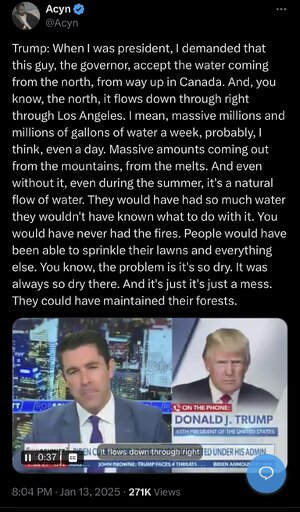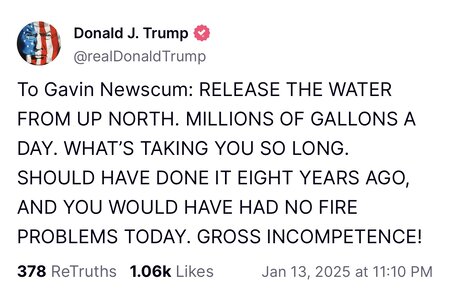It appears this crisis was foreshadowed.
Decades of mismanagement led to choked forests — now it's time to clear them out, fire experts say
“Forest management is a lot like gardening. You have to keep the forest open and thin," said Mike Rogers, a former Angeles National Forest supervisor.
The Western United States is enduring yet another devastating fire year, with more than 4.1 million acres already scorched in California alone, at least 31 people dead and hundreds of others forced to flee their homes.
Wildland fires are increasingly following a now-familiar pattern: bigger, hotter and more destructive. A recent Los Angeles Times headline declaring 2020 to be “The worst fire season. Again” illustrated some of the frustration residents feel over the state’s fire strategy.
For decades, federal, state and local agencies have prioritized fire suppression over prevention, pouring billions of dollars into hiring and training firefighters, buying and maintaining firefighting equipment and educating the public on fire safety.
But as climate change continues to fuel dry conditions in the American West, many experts say it’s long past time to shift the focus back to managing healthy forests that can better withstand fire and add to a more sustainable future.
“Fires have always been part of our ecosystem,” said Mike Rogers, a former Angeles National Forest supervisor and board member of the National Association of Forest Service Retirees. “Forest management is a lot like gardening. You have to keep the forest open and thin.”
Federal forest management dates back to the 1870s, when Congress created an office within the U.S. Department of Agriculture tasked with assessing the quality and conditions of forests. In 1905, President Theodore Roosevelt oversaw the birth of the U.S. Forest Service, which manages 193 million acres of public land across the country.
In California, forest management also falls under the purview of the state’s Department of Forestry and Fire Protection, known as Cal Fire.
Since 2011, Cal Fire has spent more than $600 million on fire prevention efforts and removed or felled nearly 2 million dead trees. In 2018, California set the goal of treating — which can include slashing, burning, sawing or thinning trees — 500,000 acres of wildland per year, yet Cal Fire remains far from meeting that target.
“It’s an ongoing process,” said Cal Fire spokeswoman Christine McMorrow. “There is always going to be more work.”
Cal Fire is steadily receiving injections of money to do what it can to reduce wildfire risk, including better land management and training a new generation of foresters. In 2018, former Gov. Jerry Brown signed a bill that will allocate $1 billion over five years to Cal Fire to be used on fire prevention measures. But experts warn that more money is needed.
“Forest management is a lot like gardening. You have to keep the forest open and thin," said Mike Rogers, a former Angeles National Forest supervisor.

www.nbcnews.com









